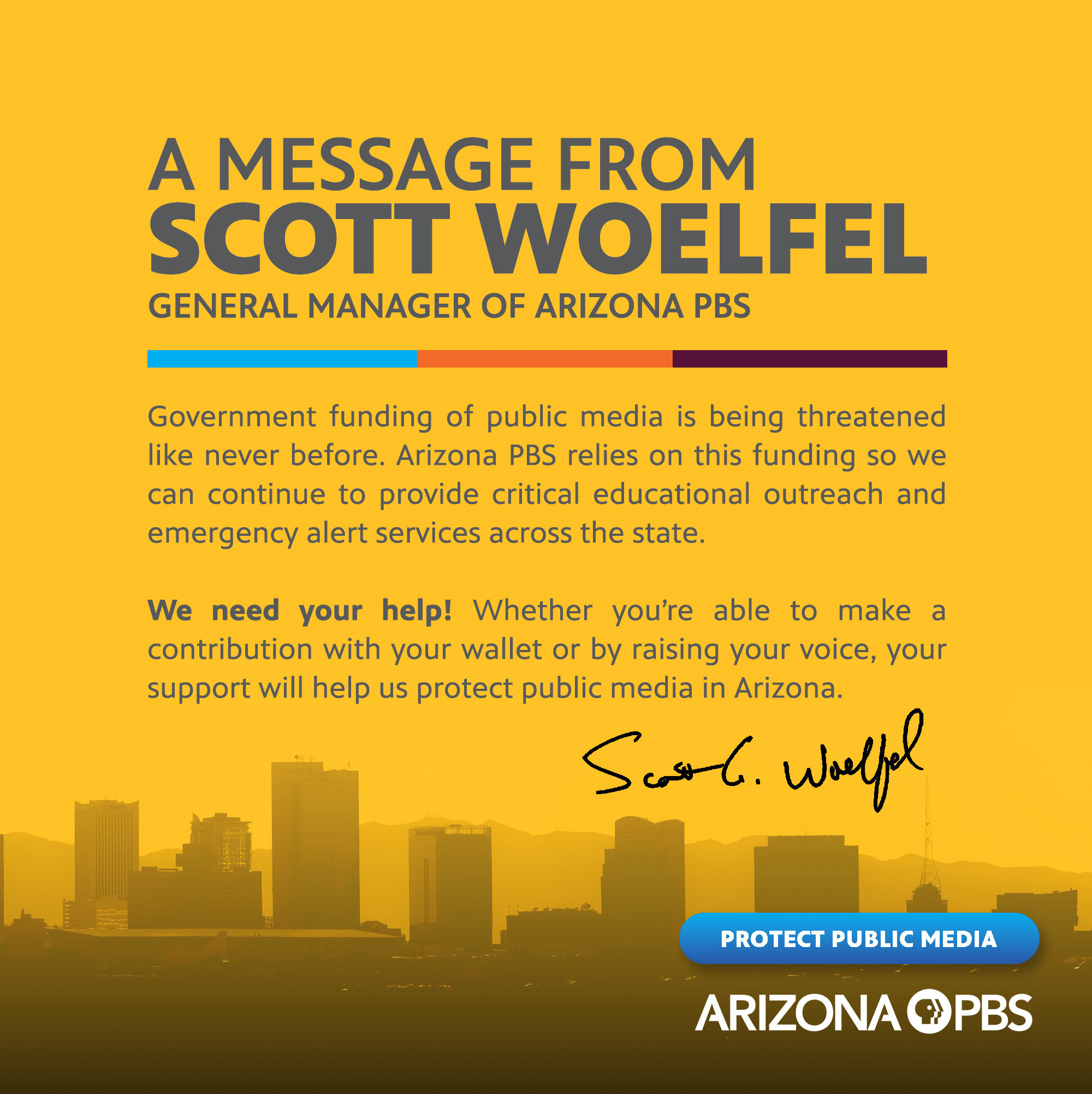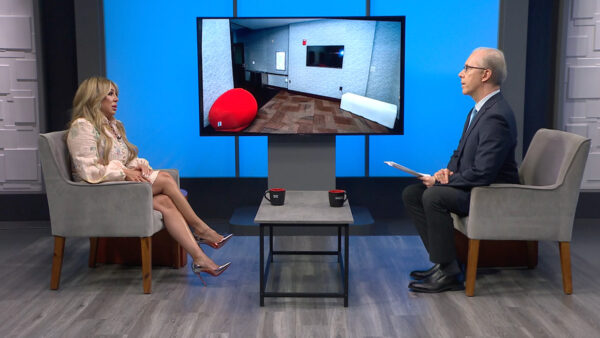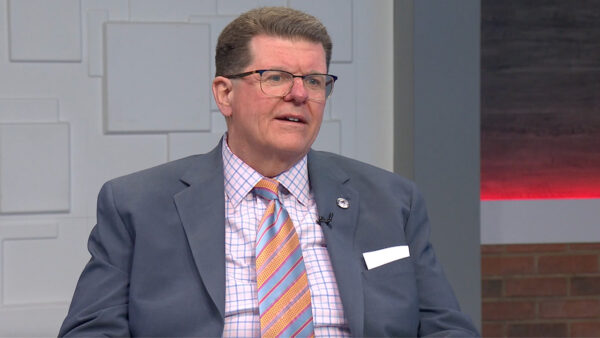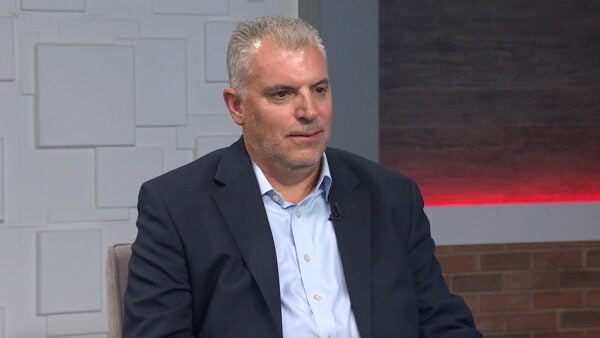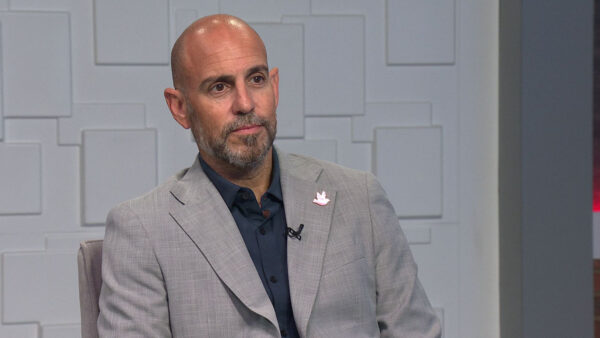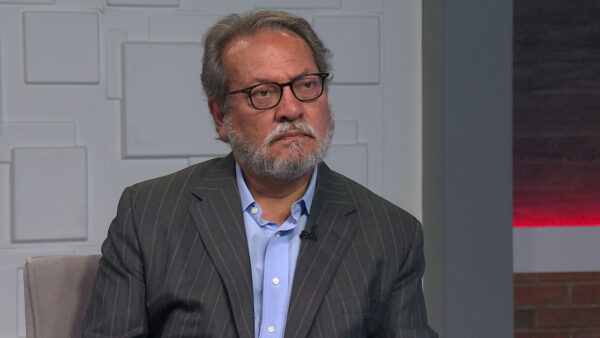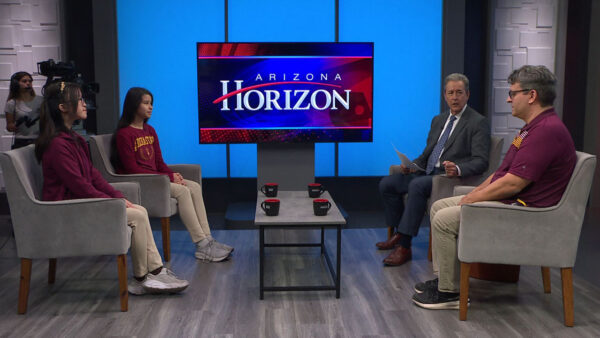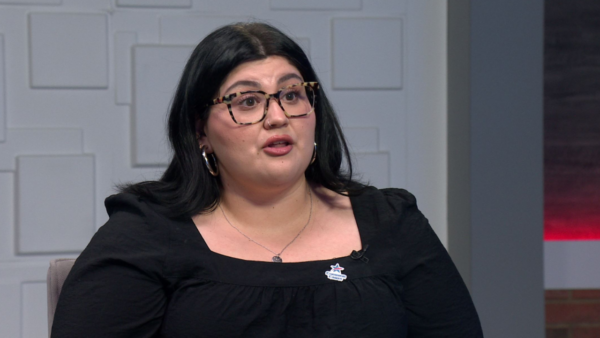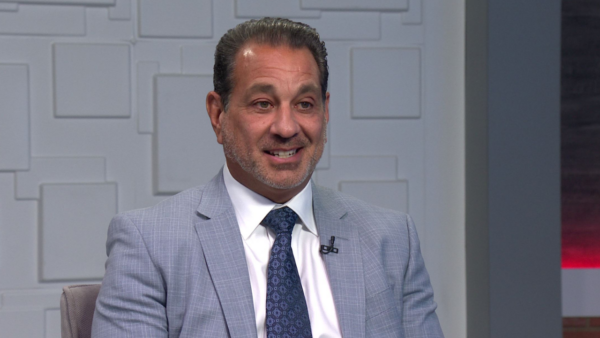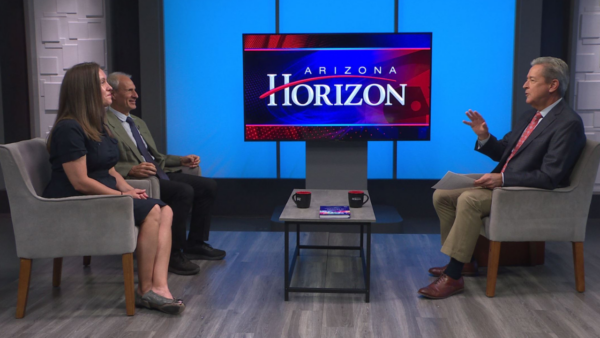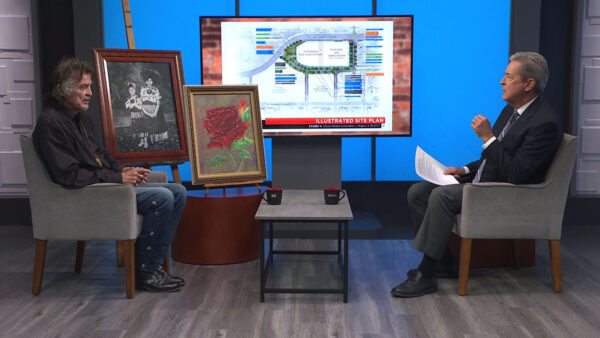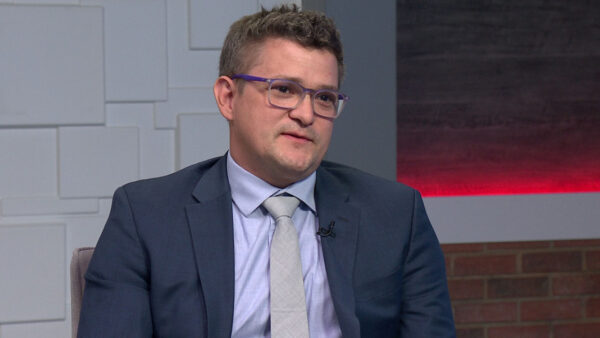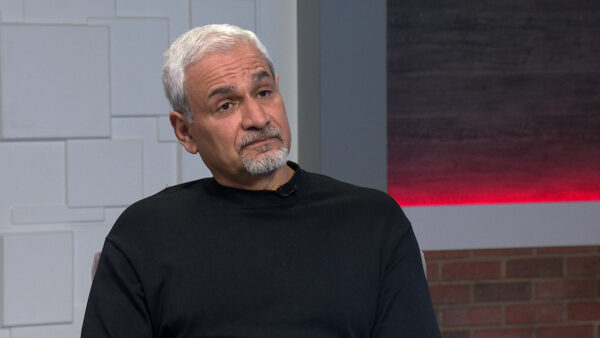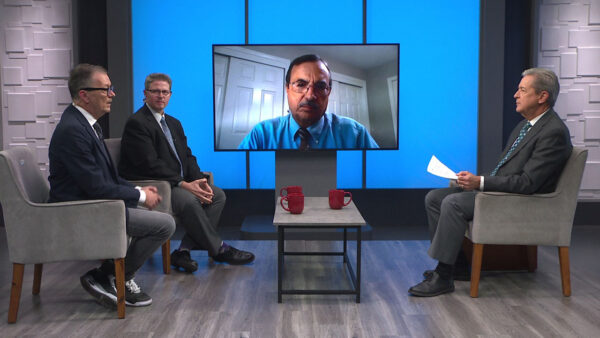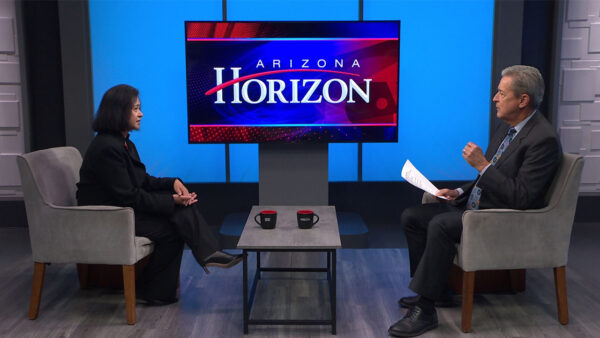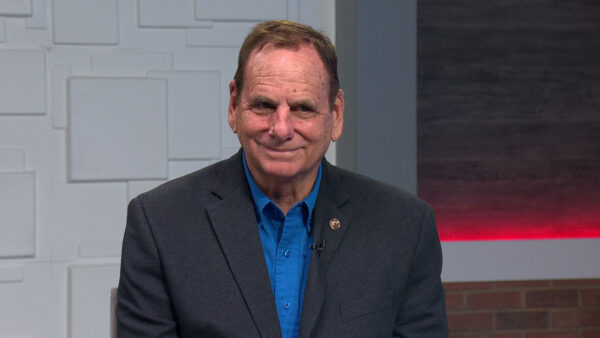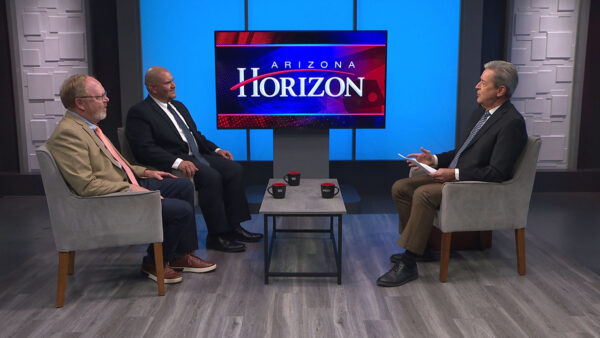The latest Arizona Town Hall dealt with higher education in Arizona. The percentage of Arizonans with college degrees remains below the national average, funding for higher education is declining, and access to postsecondary education remains a challenge for many. Panelists who attended the Arizona Town Hall on higher education will talk about solutions offered at the event.
Ted Simons: Good evening, and welcome to "Arizona Horizon." I'm Ted Simons. The latest Arizona town hall focused on the state's higher education system and issues ranging from tuition costs, to college preparedness. Joining us now are town hall participants Rick Myers, chairman of the Arizona board of regents, and judge Pat Norris, of the Arizona court of appeals. Good to have you both here. Thank you so much for joining us.
Rick Myers: Thank you.
Ted Simons: Let's start with what aspects of higher education were addressed. Give us an indication here.
Rick Myers: When you look at higher education, it's our universities, community colleges, it's the private institutions of higher education here in the state. And we looked at everything to do about the future of Arizona. And how these educational institutions can help create the future and help us in Arizona to realize our potential.
Ted Simons: I notice one of the questions here, is higher education ready for Arizona's future? What do you think?
Pat Norris: I think the institutions of higher education are ready. I think the issue is whether we're going to have a student population that will be ready for the education. For example, Ted, right now is projected that about 60% of the population will need higher education for the work force. But right we have only about 40% of our population who has that education. So the question is, is can we develop that population so that they are ready for higher education, and higher education put them in a position for success for the entire state. Because it has a lot of collateral benefits.
Ted Simons: How do we do that, especially regarding the challenges regarding tuition, preparedness, other aspects as well, how do you get that train rolling?
Rick Myers: What we're doing is trying to be innovative and collaborative. The Universities are working very closely with the community colleges, we're trying to create new alternative pathways, where people can dual enroll and start in the community college and transfer later to the University. We're trying to use technology to bring our costs down, we're trying to give as much financial aid as we can so we can get access for more people. If we have to get more people in Arizona to achieve their personal potential by getting the education they can benefit from.
Ted Simons: That brings to mind a question, I ask this often when it comes to higher education, when I went to college my goal was to get a well-rounded education. It wasn't to acquire a particular skill. It wasn't to get particular training except to wake up and go to class and those sorts of things, which are life lessons you learn in college. Has that changed? And should that change?
Pat Norris: That's a very good question. I think Rick would know different schools of thought on this. I think it is quite clear that our work force is changing. There needs to be -- You'll need probably a more targeted professional program or degree to be a success. Having said that, nevertheless, higher education has I think a very important role, and I think our town hall participants acknowledge this, that if we're going to have people who are going to be thoroughly invested in our state, from a civic standpoint, they cannot be pigeonholed, for example, only taking engineering classes, or only taking nursing classes. They need to have a broader background.
Rick Myers: I'd add to that, we live in a very competitive world, and a fast-changing world. As you say, a key part of higher education is becoming a lifelong learner. It's learning how to learn, and how to continue to adapt yourself so you can add value in that changing world.
Ted Simons: Some of the challenges I noticed Arizona public institutions of higher education are under funded. True?
Rick Myers: I certainly think that we could use more funding. If you look at our three public research institutions, right now we get funding from the state, and the states have tough times. Funding from the state of about $5,000, a student. That's some of the lowest funding per student in the nation. Even in Arizona it's funding that we go back to the 1950s to where we had that type of funding for students. Again, the state struggled, but as the economy is coming back, and I think as we can show that we are the future, that higher education is driving the future that we want in Arizona, I think we can get the legislature and the citizens of the state to invest more back in our community colleges and our Universities.
Pat Norris: If I might add something on that, what's interesting about the town hall experience is it's a very diversified body. From all over the state. And on this particular point, we decide these issues, we make our recommendations and reports through consensus. And there was absolute consensus that the additional resources that Rick was just discussing need to be applied to higher education in the state.
Ted Simons: Was there any education on how you would do that? How do you get a dedicated sustainable funding source for higher education?
Pat Norris: Well, that Rick and I were discussing this, on that particular point I don't think we made a recommendation. But, for example, the town hall consensus this year was to recommend the repeal of proposition 108, which is the proposition that requires a super majority in our state legislature to enact or pass revenue bills. And indeed, not only this town hall has made that recommendation, the town hall two years ago made that recommendation and another town hall two years before that made that recommendation. So I think when you look at the diversified people who are attending these events, they're sending a message that that's one place to start.
Ted Simons: Another place to start would be getting kids better prepared for college once they get out of K-12. Thoughts there.
Rick Myers: That's something as a society, you know, we need to address. The Universities need to do much more in the community colleges with K-12 to help them solve some of the problems that they have. Right now 25% of the kids drop out in high school, half the kids that are left to graduate, only half of those are qualified to go to one of our three universities. And at the end of the first year maybe 20% of the kids drop out. So we have a lot of leaks in that pipeline, and the only way we're going to fix those leaks is if we work together, if we apply innovation and figure out how we can improve education outcomes at all steps along the education pipeline.
Ted Simons: Where does government, where does technology -- Where do these factor in?
Pat Norris: Government issues of funding that Rick mentioned definitely factor in. And technology is truly a major player. One of the issues that came up in town hall is that we have issues of cost as some would say -- We all have access. And we have Phoenix, and Tucson as the population base, but we have a huge stake with a large rural population. And so the Universities now are working with our community colleges to provide more opportunities for online education, to provide for remote degree programs, so I think that is a major initiative that we'll see expand in the next few years.
Ted Simons: So what do we take from this report, where do we go from here?
Rick Myers: We take from this report that this town hall absolutely believes that Arizona will not realize its potential. We won't have the future we deserve if we don't invest, and we don't take advantage of higher education for the people of our state. I give everyone an opportunity to achieve their personal potential. I think we take from it that we need to make something that at that point in time in this competitive nation, competitive world, that we bring to the forefront, that we absolutely as a society talk about, think about, support so that we can make the changes that are necessary to fix this.
Ted Simons: Last question -- How do you get what he just said to happen?
Pat Norris: Hard work. And individual initiative. I think it requires the spirit of the people who are at town hall, they need to go back into their communities, and that's one of the recommendations. That is the responsibility of each one of us to achieve that. Really, this requires I think a bottom-up approach.
Ted Simons: Bottom line, does Arizona need to be more serious about higher education?
Rick Myers: I think we're very serious. We need to execute even better than we have.
Pat Norris: I think he said it very well.
Ted Simons: Alright. Good to have you both here. Thank you so much for joining us.
Pat Norris: Thank you.
Rick Myers: Thank you.
